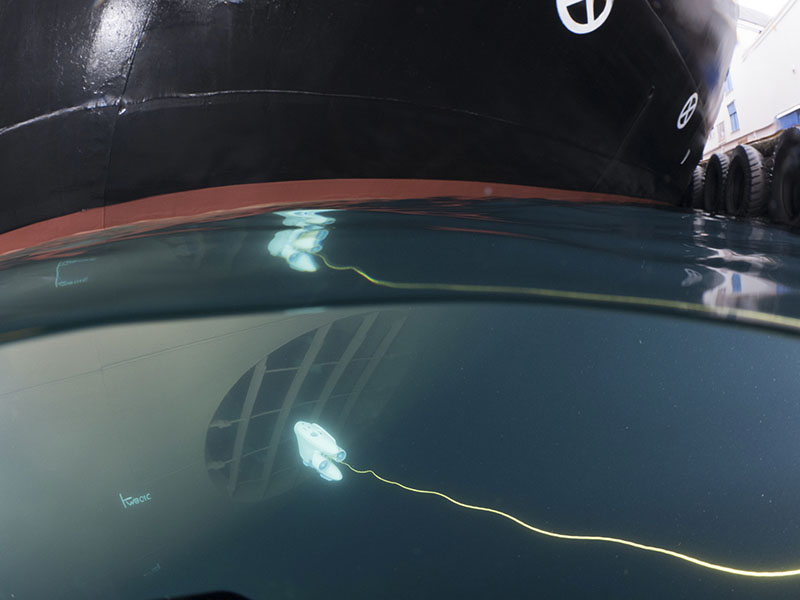
TOP TIPS WHEN HIRING A YACHT SURVEYOR
It goes without saying that choosing a yacht surveyor and commissioning them for a survey is vitally important in the ongoing management of a yacht.
Yacht surveys are crucial in ensuring that a vessel, whether commercial or private, is seaworthy, compliant with the relevant maritime standards and in line with all the necessary insurance and finance requirements.
Given how imperative these things are in the maintenance and administration of a yacht, it’s essential that the responsibility be placed in the hands of a reliable and trustworthy surveyor.
There are several different varieties of marine surveys on the market, with each one focusing on a specific area (pre-purchase, damage, valuation, equipment, insurance, to name a few). Surveyors may specialise in just one or two of these areas, which can make it difficult to identify – and subsequently commission – the right surveyor for your job.
The first things to consider when hiring a yacht surveyor
First things first, you need to establish what you want – the kind of survey are you commissioning for. You need to be clear on this before you can realistically identify a surveyor capable of implementing the survey you desire.
At this point, our experts were quick to place an emphasis on the importance of expertise and experience.
“The first consideration when hiring a surveyor is to ascertain whether he or she has the relevant expertise in the type of vessel being surveyed,” Keith Willis noted.
“Most surveyors have a broad experience but if your proposed vessel is a wooden classic then having relevant experience in that type of vessel is essential. Ask for a sample survey, so that you are aware of the style of the report and the attention to detail that you can expect.”
Expanding on this, Filippo Calcaterra of WOSA Yacht Refit – Survey outlined the following three “characteristics” as being key in sourcing companies or individuals sufficiently equipped to undertake your project:
- Experience surveying similar types and sizes of vessels as the one being sought for
- A strong reputation in the industry for being impartial and fair
- Actual sailing experience and not just theoretical knowledge
“Clients need to consider the type of survey they are contracting for,” Filippo said. “If they are looking for new-build supervision throughout the construction period then geographical proximity of the surveyor will definitely have an impact on both cost as well as efficiency. Having a surveyor close to the project can be very helpful, especially in the final phases of the build.
“If instead they are looking for a pre-purchase survey or one-off, then the above is of lower importance,” he added.
Beware: Some surveyors compensate for their lack of expertise and experience by offering discounted rates, which appeals to those who instinctively consider the lowest price to be ‘the best deal’.
These inexperienced surveyors could prove to be brilliant, in which case the cheap rate would seem like a steal, but where they don’t have a proven track record like an experienced surveyor would, you’re not afforded the same level of assurance or peace of mind.
So, we’ve established that expertise and experience is essential. What next?
Once you know what your project is and which surveyors are able to provide you with the service you require, you face the tricky decision of narrowing down your options. One of the dilemmas you could face at this stage is whether to opt for a solo surveyor or a larger, more well known surveying company.
Lee Warltier of SG Survey highlights the main pros and cons you should consider before making a decision on what kind of surveyor to pursue.
“Often, larger survey firms will be able to offer a wider range of services, better availability and a larger pool of experience and qualification than a solo operation.

“This is not to say the solo operations should be dismissed; there are many individual surveyors whose reputations, qualifications and experience are vast – though these may well be more expensive also.
“It is always useful to find a surveyor that will give the best value for money without jeopardising quality of service.
“The appointment of a surveyor should not be about cost.”
What constitutes a good yacht surveyor?
You’ve compiled a shortlist of potential surveyors that fit the criteria for your project. Now you need to begin thinking about which surveyor you want to commission.
In order to help you select the best candidate, we thought we’d ask our experts to summarise what they believe makes a good surveyor. Take note – if our experts would look for these traits in a surveyor, you should probably do the same.
Gary Miller of Miller Marine explains, “A good yacht surveyor will not object to you attending the survey. They will answer your questions and give detailed information in report of both minor and major issues – they will also clarify points on report if you need more information.”
Echoing the sentiment of open and effective communication, Keith Willis suggests a trustworthy surveyor will tailor their approach to gratify the needs of each client.
“A good surveyor, in my opinion, is one that communicates well with their client and is realistic in what they inspect and report about. A good surveyor should be honest about their capabilities and adapt one’s language and report content to suit the client’s technical knowledge.”
In order to be able to tailor their report, a surveyor must be able to think about the survey from both a theoretical and a practical perspective.
“A good yacht surveyor is a person that has experience from both a theoretical as well as practical point of view,” Filippo Calcaterra says. “They need to be able to look at an installation and imagine the consequences of a potential failure or problem when the vessel is at sea and possibly in dangerous conditions.
“They should also find a balance between what is important from a cosmetic point of view versus practical, given the time limitation of the survey. Focusing too much on either aspect will not give a full picture of the yacht being surveyed.”
It is worth remembering that for every respectable and reliable yacht surveyor there are some less impressive ones too. The bad yacht surveyors are not always obvious at first glance, as Lee Warltier explains.
“There is a fine line between these two depictions [good and bad]. A good surveyor is one that keeps you updated and provides maximum information to you as the client: You should not expect to have to wait more than a few days for a report. The scheduling of a survey attendance should also factor in the element of report writing – this is always a sign of work commitment and personal management skills.
“The surveyor’s product is his report. The best surveyor in the world can look terrible if they produce a poorly constructed report and vice versa; some glowing reports can come from a poorly trained or inexperienced surveyor that is just good with Microsoft Word. Neither scenario is much use to you as a client.

“These days it is unfortunate to see and hear of many surveyors that only complete the parts of a survey that they want. We are forever seeing reports that do not give any real information because X was not tested, Y could not be accessed or Z required too much time. Such disclaimers make you wonder what the surveyor actually did.
“Whilst there are always limitations to any appointment, the surveyor should discuss these openly with the client for the protection of both parties.”
Final insider tips from yacht surveying professionals
You’re now in a position where you can make an educated decision on what yacht surveyor to commission.
Just before you set about signing anything, though, we invited our experts to share a final insider tip that should help as you navigate your way through the commissioning process.
- Filippo Calcaterra: “Be wary of anyone that claims to know everything! A good surveyor is able to admit when they are uncertain and need to consult before giving an expert opinion.”
- Lee Warltier: “We are not all salty seafarers. Specifically in the larger yacht and commercial sectors there is an old adage that one needs to have the title of ‘Captain’. Within our various associations there are some brilliant surveyors who have very little sea time and fall on a more engineering or academic background. The key is finding the balance between qualification and experience.”
- Keith Willis: “If you decide to accompany the surveyor during the survey, remember to give them some space and allow them to work, by all means ask questions but remember that time spent talking is time not spent looking at your prospective vessel.”
- Gary Miller: “Ensure the vessel is ready for inspection, areas cleared etc. Surveyors do not want to make repeated visits [at extra cost to the client] if items are not ready for inspection. If unsure of what you need to have ready then ask surveyor in advance.”
